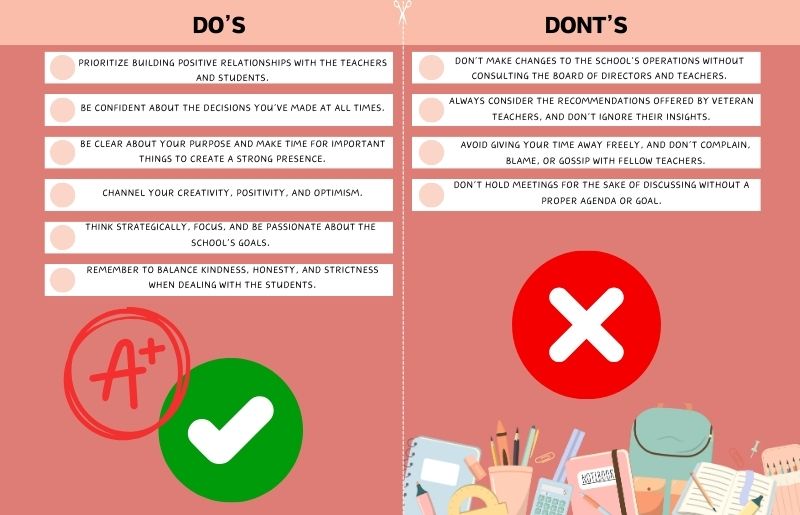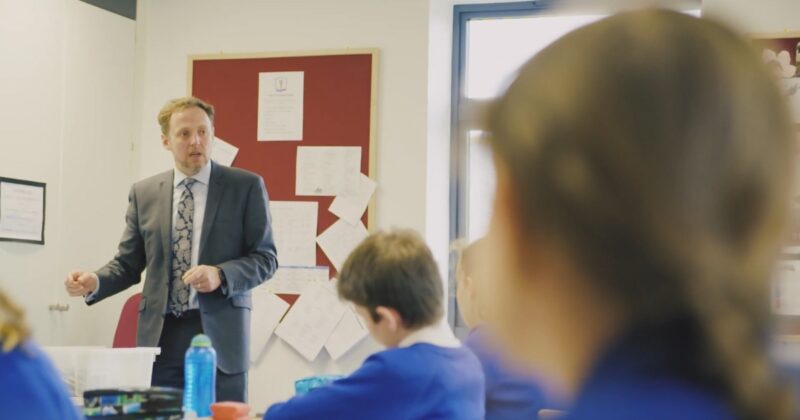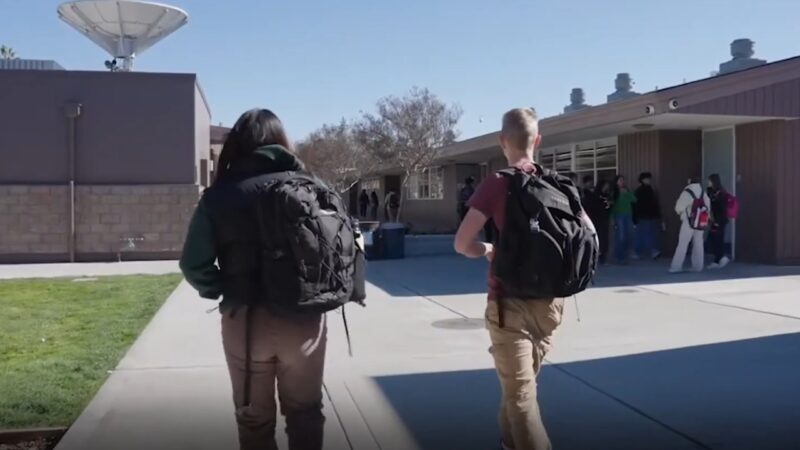As a school leader, your job is to help teachers and students do their best. You’ll influence how the school teaches and how students learn. Your job is to lead the school well.
Before you start, it’s important to know how to build a strong school community, support teachers, and use resources wisely. Your leadership will affect the school’s success and the atmosphere for learning.
This blog will cover common mistakes, and challenges, along with the pros and cons of leading in education. We’ll give you the info you need to be a great leader in education.
How Do You Become an Educational Leader?

To be an effective school leader, you need the skill to positively impact others. Use your abilities to guide and motivate everyone involved in education, from teachers to families. A strong commitment to your school is also key.
Think of yourself as always learning, with a knack for planning and understanding others. Then you’re set to foster teamwork. Get involved by mentoring, joining committees, and more.
Interested in going further? Consider an online Doctorate in Education and Leadership. Specialize in areas like Higher Ed, Organizational Leadership, or K-12. It’s a two-year journey where you’ll connect with peers and focus on practical learning.
Those who want to know more about curriculum development and policies can explore onlinedegrees.rockhurst.edu. With the help of these programs, educators can easily access high-quality coursework and flexible schedules to balance their professional responsibilities.
The Do’s and Don’ts of Educational Leadership

According to the National Library of Medicine, educational leaders can have issues with school safety and the widening equity gap. They can also face burnout if they don’t know the right way to lead an institution.
Therefore, to succeed, you must focus on an equitable distribution of resources and support. For that, all you have to do is focus on the dos and don’ts.
The Do’s
As an educational leader, you must follow these tips to have a bright and positive future:
- Prioritize building positive relationships with the teachers and students.
- Be confident about the decisions you’ve made at all times.
- Be clear about your purpose and make time for important things to create a strong presence.
- Channel your creativity, positivity, and optimism.
- Think strategically, focus, and be passionate about the school’s goals.
- Remember to balance kindness, honesty, and strictness when dealing with the students.
The Don’ts
Do you want to ensure a positive career path in educational leadership? Then, you should avoid the following mistakes:
- Don’t make changes to the school’s operations without consulting the board of directors and teachers.
- Always consider the recommendations offered by veteran teachers, and don’t ignore their insights.
- Avoid giving your time away freely, and don’t complain, blame, or gossip with fellow teachers.
- Don’t hold meetings for the sake of discussing without a proper agenda or goal.
6 Myths About Educational Leadership

According to John Dabell, a trained teacher, the school leadership pipeline is running dry due to an issue with its ‘image.’ Many hold a negative idea of this career based on toxic stories muddled by false promises and stereotypes.
Even though leadership is the pillar of any successful school, it’s not a sustained career choice for many. That’s because of the persistent myths that taint this job role. Some of these include the following:
- You must have a natural ability to lead teachers and students.
- Time management is an issue in this career path, and you’ll have extreme workloads.
- You must be a trailblazer and an extrovert to be successful in this career.
- You cannot be nice to your teachers or students.
- The school leaders cannot be vulnerable or show emotions.
- Educational leaders need to be available 24/7 and know everything about the industry.
That’s why you must understand and recognize these myths to stay emotionally intelligent and informed. Once you overcome these, you can empower others, encourage teamwork, create a vision, and prioritize goals.
Exploring impactful resources for educators can provide valuable insights into educational leadership, debunking myths, and addressing challenges encountered in the field.
The Challenges You Can Face While Leading an Institution

As an educational leader, your duties will encompass understanding education law, fostering a positive school culture, managing financial resources, and crafting curricula. Yet, the journey to lead an educational institution is fraught with various challenges and issues. Among these, two notable ones are:
The Crisis Challenge
When a school’s leadership changes suddenly, it can shake things up. If it’s not handled right, it could hurt the school’s future and how people see it.
So, those in charge need to calm things down fast. To stop the same problems from popping up again, they need to think ahead and make plans for both now and later.
In the realm of educational leadership, understanding the transformative impact of certain habits can greatly influence your approach and effectiveness, particularly in terms of consistency and persistence.
The Creative Challenge
Sometimes, schools get a shot at doing something different, like when they get extra funds or new rules come into play. This is a chance to shake things up and make a lasting impact.
But not all new ideas will stick around. That’s why it’s smart to work with teachers to come up with fresh ways to run things. By working together, you can tackle any creative hurdles and come out on top.
Leading a school is tough, with lots of hurdles to clear. You’ve got to know what works and what doesn’t, handle the big problems, have the right qualifications, and bust any myths out there. And even with all that, there’ll always be new challenges to face.
In 2022, Forbes stated that school leaders and counselors faced extreme burnout. To counter such a situation, you can create an inclusive, respectful, and positive environment for collaborative learning.
As a mentor, I share my knowledge with educators worldwide, believing in the power of collective wisdom to shape a better future.
My leadership has turned Talks With Teachers into a haven for educators to grow and celebrate their profession, truly embodying the organization’s pioneering and caring ethos.







